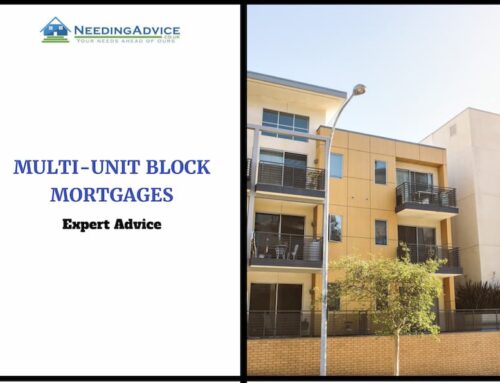Understanding Mortgage Eligibility in the UK
When contemplating the purchase of a home, understanding the mortgage eligibility criteria is crucial. Mortgages in the UK are governed by stringent rules that ensure borrowers can meet their repayment obligations without undue financial strain. Therefore, grasping the basics of these requirements can pave the way for a smoother application process.
Overview of Mortgage Requirements
In the UK, mortgage lenders typically evaluate potential borrowers on several factors including income, employment status, credit history, and the size of the deposit. The process is designed to assess the financial stability and repayment capacity of the applicant, thereby minimizing the risk of default.
Role of Income in Mortgage Approval
Income plays a pivotal role in determining how much you can borrow. Lenders generally use income multipliers to decide the maximum loan amount they are willing to offer. For a £250,000 mortgage, you might need an income of approximately £55,556 per year, considering a typical income multiplier of 4.5 times your annual salary.
Gross vs. Net Income
Lenders typically base their calculations on gross incomeThe total income earned before any deductions, such as taxes..., which is your income before taxes and other deductions. However, net income, or take-home pay, is also considered when evaluating your ability to cover monthly repayments alongside other living expenses.
Affordability Calculations
Debt-to-Income Ratio
A critical component of mortgage eligibility is the debt-to-income ratio, which compares your monthly debt obligations to your gross monthly income. Lenders prefer a lower ratio, typically under 40%, indicating that you are not overburdened with existing debt.
Stress Testing
Stress testing ensures that you can afford repayments even if interest rates rise. Lenders often calculate whether you can handle an increase in interest rates by up to 3% on top of the current rate, ensuring long-term affordability.
Income Requirements for a £250,000 Mortgage
Typical Income Multipliers
To estimate how much you need to earn for a £250,000 mortgage, income multipliers are useful. Typically, lenders offer loans up to 4.5 times your annual salary. Therefore, for a £250,000 mortgage, you might need an income of approximately £55,556 per year. However, this can vary based on individual circumstances and lender policies.
Variations Among Lenders
Different lenders may apply varying criteria and income multipliers. Some may offer more flexibility, especially for those with substantial deposits, high credit scores, or minimal debt. Comparing offers from multiple lenders can help find the best terms. For more information on traditional mortgage in the UK, visit our conventional mortgage guide.
Other Factors Influencing Mortgage Approval
Credit Score and History
A high credit score and clean credit history significantly enhance your chances of mortgage approval. Lenders view a good credit score as an indicator of reliability and financial responsibility. Learn how to improve your credit score.
Employment Status
Stable employment, preferably full-time and permanent, is another key factor. Self-employed applicants may need to provide additional documentation to prove income stability. Our guide on mortgages for self-employed individuals offers more insights.
Deposit Size
A larger deposit reduces the loan-to-value (LTV) ratio, making you a less risky borrower. For a £250,000 mortgage, a deposit of at least 10% to 20% is generally recommended. Read more about the importance of deposit size.
Property Type and Location
The type and location of the property also impact lender decisions. Properties in high-demand areas or in good condition are more likely to secure favorable mortgage terms.
Case Study: Example Scenarios of Different Income Levels
Consider two individuals: one earning £60,000 annually and another earning £40,000. The higher earner might easily qualify for a £250,000 mortgage, while the lower earner might need to improve their application by increasing their deposit or reducing existing debts.
Improving Your Chances of Approval
Enhancing Your Credit Score
Regularly checking your credit report and addressing issues can improve your score. Paying bills on time, reducing credit card balancesOutstanding credit card balances, which may affect a borrowe..., and avoiding new credit applications close to your mortgage application can help.
Managing Existing Debts
Reducing or clearing existing debts improves your debt-to-income ratio, making you a more attractive borrower. Consider consolidating debts or seeking professional advice to manage repayments effectively. For advice on debt management, see our debt management guide.
Saving for a Larger Deposit
A larger deposit reduces the loan amount and LTV ratio, making your application more appealing to lenders. Setting a savings target and sticking to a budget can help accumulate the necessary funds. Explore our tips on saving for a mortgage deposit.
The Application Process
Documents Needed for Mortgage Applications
Typical documents required include proof of identity, proof of income, bank statementsA record of a borrower's financial transactions often requir..., and details of any existing debts. Having these documents ready can expedite the application process.
Step-by-Step Guide to Applying
The application process generally involves an initial consultation with a lender or broker, submission of documents, affordability assessment, and a formal mortgage offer if approved. Understanding each step can reduce anxiety and prepare you for what to expect.
Common Pitfalls and How to Avoid Them
Overestimating Your Budget
Being realistic about your budget prevents over-borrowing. Consider all monthly expenses and leave room for unforeseen costs to avoid financial strain.
Ignoring Additional Costs
Buying a home involves additional costs like stamp dutyA tax paid by the buyer when purchasing a property., legal fees, and moving expenses. Factoring these into your budget ensures you are fully prepared financially. For a breakdown of these costs, see this external resource on home buying costs.
Not Considering Future Financial Changes
Life changes such as having children or career changes can affect your financial situation. Planning for these potential changes ensures long-term mortgage affordability.
Next Steps
If you’re considering applying for a mortgage of £250,000 in the UK, understanding your financial position and the application process is crucial. Our team of experienced mortgage brokers is ready to assist you every step of the way. With personalized advice tailored to your unique situation, we can help you navigate the mortgage landscape, identify the best lender options, and ensure you are fully prepared for your application. Contact us today to discuss your mortgage needs and take the first step towards your new home!






